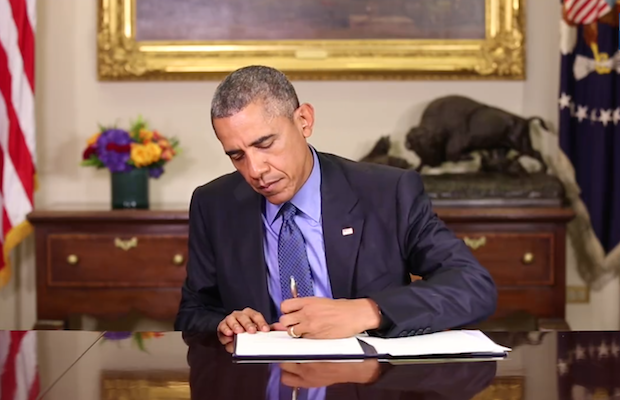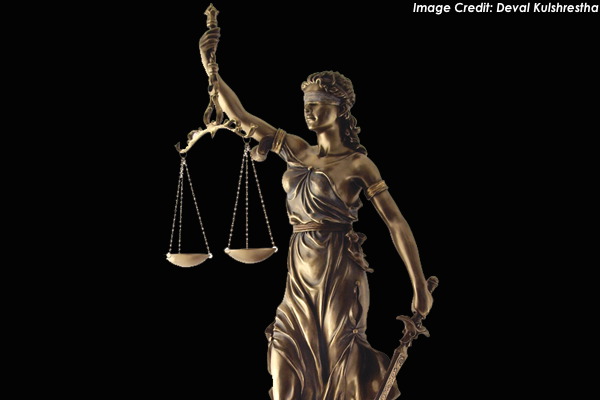Last week, on Monday, July 13th, President Obama announced that he would commute the sentence of 46 Federal prisoners, non-violent drug offenders who he believed were serving punishments disproportionate to their crime.
In his Facebook video to explain his decision, the President noted:
“These men and women were not hardened criminals, but the overwhelming majority had been sentenced to at least 20 years.
I believe that at its heart, America is a nation of second chances. And I believe these folks deserve their second chance.”

Barack Obama signing clemency grants to convicted non-violent drug offenders with disproportionate sentences, July 2015. (Credit: The White House)
Obama’s decision is not a singular event, but part of a series of events throughout his presidency aimed at bringing awareness to some of the broken parts of the American criminal justice system.
Since taking office, Obama has commuted 89 men and women serving time, 76 of whom were nonviolent drug offenders.
On Tuesday, July 14th, President Obama addressed the NAACP on the need for reform in our criminal justice system.
The Marshall Project notes, “no sitting president has ever publicly spoken at such length and in such detail as Obama now has about the persistent problems of crime and punishment in this country.”
Obama’s no-holds-barred speech touched upon everything from the over-sentencing of non-violent drug offenders to racial injustices in the criminal justice system to the school-to-prison pipeline to the detriments of solitary confinement.
He offered specific and necessary reforms to improve our criminal justice system, such as lowering or eliminating mandatory minimums and addressing crime prevention at the community level. (Check out more details here.)
Then, on Thursday, July 16th, Obama became the first sitting president to ever visit a Federal prison. There, he met with six, non-violent drug offenders who explained their hopes for the future and the obstacles they’ll have to overcome as they eventually re-enter American society.
Obama’s recent push to call attention to the failings of our justice system may just be working.
While there is still a wide divide between philosophies on justice and a general overuse of rhetoric which calls for politicians to be “tough on crime”, there is currently bipartisan support for bills in the House of Representatives and the Senate which would reduce the number of low-level drug offenders in prison by reforming prison sentencing and creating pathways for early release.
During his speech to the NAACP, Obama made an impassioned plea that all Americans should pay attention to if they desire to make common sense changes to make our criminal justice system more fair and effective.
“While the people in our prisons have made some mistakes, and sometimes big mistakes, they are also Americans. And we have to make sure that as they do their time, and pay back their debt to society, that we are increasing the possibility that they can turn their lives around.”





 There can be no justice in a justice system that frequently imprisons the wrong people because of poor or non-existent representation, racism, or other factors. Nor does wrongful imprisonment keep us safe, given that it may mean a real offender is instead walking free to commit new crimes.
There can be no justice in a justice system that frequently imprisons the wrong people because of poor or non-existent representation, racism, or other factors. Nor does wrongful imprisonment keep us safe, given that it may mean a real offender is instead walking free to commit new crimes.
